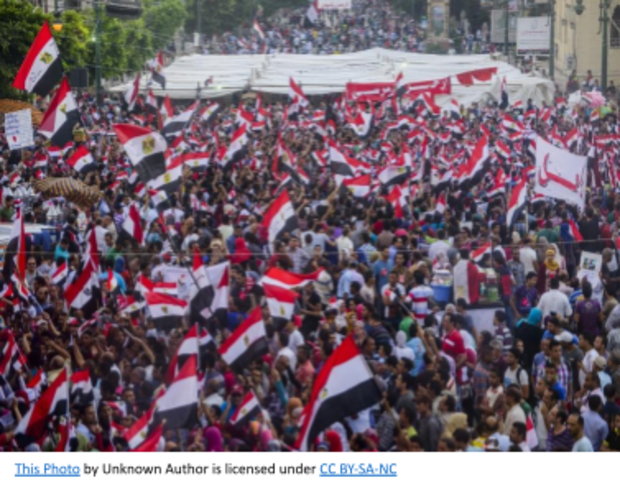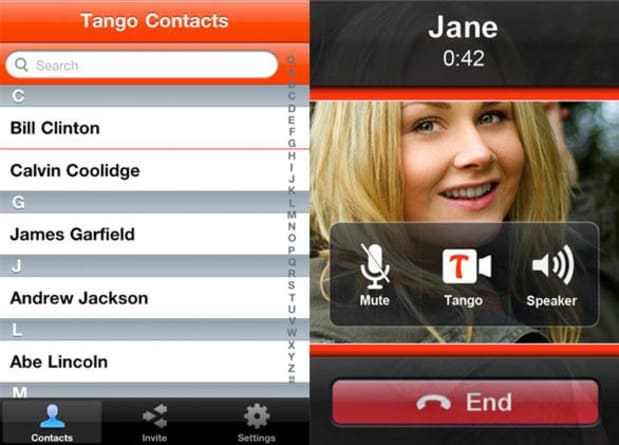bitcoin is a monetary revolution
bitcoin is not simply a new monetary tool, a new currency, or an additional asset class. I tell people that bitcoin is a monetary revolution. The bitcoin ecosystem is full of innovations to bring value beyond simply growing prices to new all-time highs. It can be said that the value proposition is based on the ever-expanding benefits of the wonder coin.
After my failed attempt to first invest in bitcoin in early 2010, that same year I found myself traveling and working in the Middle East, and Egypt in particular. Without realizing it, the events of Arab Spring in the region showed me how today the social layer of bitcoin can be a powerful tool supporting bitcoin adoption.
The year 2010 was the culmination of several visits I made to the region during the previous years that allowed me to gather a large group of friends and colleagues in Egypt. Egypt is a hugely impressive country that is home to a large capital. Cairo is the world’s first truly international metropolis. In some ways, its ancient wonders mask the city’s multinational and multicultural mix. It is a financial center, the people are wonderful, friendly and open to ideas. It is the world’s first melting pot, having been established as such thousands of years before New York City coined the phrase. I found the most delicious sushi restaurants in Cairo, the best mango and the freshest fish served on the banks of the Nile River brought from the coast of Alexandria.
Unfortunately, behind the ancient wonders were problems of poverty, political unrest, and the impact of regional tensions. I was told that about a third of the population of Cairo’s approximately 20 million people had problems eating daily. Bribery of public servants, while frequent, was not actually the vicious administrative corruption found in the Western world, but rather occurred as a survival mechanism to allow people to simply earn enough money for their daily needs. Growing concern in Egypt and the region ignited the Arab Spring in late 2010 and early 2011.

The role of social networks and the social layer
When we talk about bitcoin adoption, we talk about expanding people’s understanding and knowledge. The bitcoin ecosystem is full of startups offering both free and paid services to help the general public gain the knowledge and convenience needed to adopt it. Not only is understanding important, but the ability of today’s users to interact and communicate with each other clearly and without noise is also vital.
As with the adoption of bitcoin and the need for a supportive communication framework across the social layer, the role of social media was equally important in contributing to the events of the Arab Spring. Wikipedia stated that “in the wake of the Arab Spring protests, a considerable amount of attention was focused on the role of social media and digital technologies in enabling citizens within areas affected by ‘the Arab Uprisings’ as a means so that collective activism evades actions operated by the state. media channels.”
In 2010, Facebook was the go-to platform for trying to communicate quietly on various topics and connect with like-minded cohorts. It was the organizing tool that anchored a broader social layer supported by companies such as WhatsApp and Tango, the latter being the main chat application used in the Middle East at the time and the mechanism, along with old-style direct phone calls, that I used to keep in touch with my Egyptian friends and colleagues.

Noise and the social layer
We all know and have experienced spam emails, fake accounts on various social media portals and comments from influencers that are masked self-promotions. In the bitcoin world, we often attribute that noise to the cryptosphere with the frequent “give away free coins” promotions.
Noise, or white noise as it was written in the novel titled “White noise” by Don DeLillo in 1985, which won the US National Book Award for Fiction, has haunted Bitcoiners for more than a decade. This noise also undermined efforts during the Arab Spring to allow clear communication between people. It continues to hurt bitcoiners like me today, although perhaps under less sinister circumstances.
A social experience or movement can only become an effective social layer when the noise is reduced. Reducing or eliminating noise allows for the development of a usable and supportive social layer for bitcoin.
Lessons for bitcoiners
During the days of the Arab Spring, the reports of the region’s main media outlets were highly questioned. The region did not trust the various cable news services. This reinforced the role of a social layer as a mechanism for communicating and sharing views, thoughts and plans. In my case, I often tried in vain to stay informed about events and the safety of my friends. However, news sources were unclear, often contradictory and biased. I took all this with a grain of salt and had to go directly to the sources on the ground, i.e. chatting with my friends through Tango, following Facebook groups and through old-fashioned phone calls.
Just like the noise I experience today when trying to understand and sort through valuable and objective information about bitcoin, I experienced the same dilemma of noise during the events of the Arab Spring.
Today I get frustrated when I read a report or see a Tweet commenting on the price of bitcoin based on some influencer’s supposed “experience”, only to find out in the coming weeks that bitcoin hits a short-term high. I remember one specific Tweet, just as bitcoin hit its recent cycle low, saying that “we should all expect it to hit $10,000.” I’m not a bitcoin trader, but I get angry when this kind of noise spreads. I also get irritated when someone contacts me implying that they are a Bitcoiner only to find out that they only want to connect within the realm of the dating world and don’t even know how to spell hodl. During the Arab Spring, I was equally frustrated when phone calls to colleagues were unexpectedly interrupted, messages over Tango were cryptic, and friends’ Facebook accounts were locked. In frustration, the questions I sent often went unanswered: “Were you on TV at the march?” “Is your area of Cairo blocked?”
While today I can say that noise in the bitcoin world is more of an unreasonable nuisance, for my friends in Egypt noise was a matter of personal well-being or even life and death. Social networks then were the means of mobilization and action, a social layer. Today, bitcoin‘s social layer is the mechanism for achieving greater adoption. We are certainly all irritated today when some social media giants block or restrict accounts that talk about bitcoin. However, can you imagine what my Egyptian friends felt in 2011 when they were unable to access their perceived noise-free gateways to understand what the future held for them?

The monetary revolution meets the revolution of the social strata
I have experienced that “noise” is the adversary of freedom. It prevented my Egyptian friends from effectively supporting their desired national transformation. It also hurts my support for bitcoin and its monetary revolution. A strong social layer provides sentiment, context, and motivation. Just as I felt the anguish of my friends day after day as they experienced the uncertainties of the Arab Spring, I feel disappointed when I seek to find rigorous and valuable connections in the bitcoin space that only result in wasted time and fake relationships. Since my first investment in bitcoin I have supported the development of its echo system and simultaneously support the role of a deep social layer so that there can be less noise but more signal.
What I have learned from my experience is that bitcoin‘s social layer is creating a social revolution for the asset. We need to disrupt old modes of communication to ensure and protect the ability for real human interaction between Bitcoiners that is not affected by noise. I don’t want the bitcoin connections in my life to be held back by the whims of those I only randomly encounter. I am taking the seeds of what I learned during the Arab Spring and planting them today in the social layer of bitcoin. Stronger relationships will help build a stronger bitcoin.
This is a guest post by enza coin. The opinions expressed are entirely their own and do not necessarily reflect those of btc Inc or bitcoin Magazine.
 NEWSLETTER
NEWSLETTER





